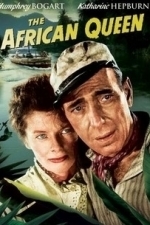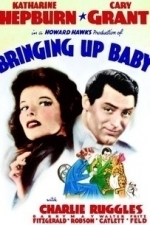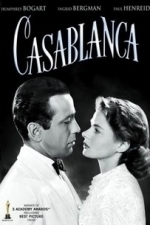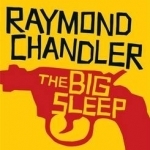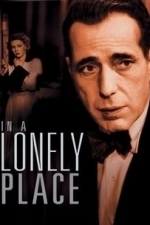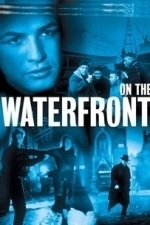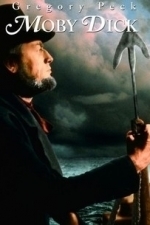Search
Search results
Scott Glenn recommended The African Queen (1951) in Movies (curated)
Doug Liman recommended Bringing Up Baby (1938) in Movies (curated)
Lainie Kazan recommended Casablanca (1942) in Movies (curated)
F. Gary Gray recommended Casablanca (1942) in Movies (curated)
Suswatibasu (1703 KP) rated The Big Sleep in Books
Jul 28, 2017
Complex classic film noir style
This is a classic. Most people will probably know the Humphrey Bogart big screen version but Raymond Chandler was clearly the original. Gritty, dark and twisted - unusual for its time - he broke boundaries with some of the themes described. As brilliant as it is written, the plot at times gets too complicated and if you're not concentrating, you'll end up missing important clues.
Megan Abbott recommended In a Lonely Place (1950) in Movies (curated)
F. Gary Gray recommended On the Waterfront (1954) in Movies (curated)
Morgan Freeman recommended Moby Dick (1956) in Movies (curated)
William Sadler recommended The African Queen (1951) in Movies (curated)
DaveySmithy (107 KP) rated Casablanca (1942) in Movies
Dec 3, 2024
A Timeless Classic: Casablanca - A 10/10 Masterpiece
Few films manage to withstand the test of time quite like Casablanca. Released in 1942, this cinematic gem not only defines its era but also transcends it, continuing to captivate audiences decades later. Directed by Michael Curtiz and featuring unforgettable performances by Humphrey Bogart and Ingrid Bergman, Casablanca is a rare film that combines stellar storytelling, iconic performances, and a profound emotional core into an unparalleled movie experience.
What makes Casablanca truly extraordinary is its perfect balance of intimate romance and global stakes. Set during World War II in the Moroccan city of Casablanca, the story revolves around Rick Blaine (Bogart), a cynical American expatriate who runs a nightclub, and Ilsa Lund (Bergman), the woman who once broke his heart. Their unexpected reunion is fraught with unresolved emotions and set against the backdrop of political intrigue, resistance efforts, and the shadow of Nazi oppression. It’s not just a love story—it’s a story of sacrifice, morality, and the search for meaning in chaotic times.
Humphrey Bogart, known for his tough-guy persona, delivers a nuanced and deeply human performance as Rick. His dry wit, vulnerability, and quiet heroism make Rick one of cinema’s most iconic characters. Bogart effortlessly conveys the tension between Rick’s outward indifference and his inner turmoil, making his journey from apathy to sacrifice profoundly moving. Opposite him, Ingrid Bergman is luminous as Ilsa. Her portrayal is layered with strength, grace, and a quiet sadness that makes her character unforgettable. The chemistry between Bogart and Bergman is electric, their unspoken longing resonating in every glance and line of dialogue.
The supporting cast is equally brilliant. Claude Rains as the charmingly corrupt Captain Renault steals nearly every scene he’s in with his biting humor and moral ambiguity. Paul Henreid’s portrayal of Victor Laszlo, the noble resistance leader, adds gravitas to the story, while Sydney Greenstreet and Peter Lorre deliver memorable turns as colorful figures in Casablanca’s shadowy underworld. Every character, no matter how small their role, feels fully realized and essential to the tapestry of the story.
What elevates Casablanca to legendary status, however, is its script. Few films boast dialogue as sharp and iconic, with lines like “Here’s looking at you, kid,” and “We’ll always have Paris” becoming ingrained in pop culture. The screenplay, penned by Julius and Philip Epstein and Howard Koch, is a masterclass in storytelling, seamlessly blending romance, suspense, and humor. Each scene serves a purpose, driving the plot forward while deepening the emotional stakes.
Max Steiner’s score is another standout element, with the recurring use of “As Time Goes By” becoming as timeless as the film itself. The music weaves through the narrative, underscoring moments of joy, heartbreak, and tension with haunting beauty.
But perhaps the most remarkable aspect of Casablanca is its ability to resonate on multiple levels. It’s a sweeping romance, a gripping war drama, and a meditation on sacrifice and duty, all rolled into one. Its themes remain universal, its characters relatable, and its emotional impact undiminished by time.
In a world filled with good movies and great movies, Casablanca stands apart as a perfect one. It’s not just a film—it’s an experience, a masterpiece that speaks to the heart and soul. For that, it earns a well-deserved 10/10.
What makes Casablanca truly extraordinary is its perfect balance of intimate romance and global stakes. Set during World War II in the Moroccan city of Casablanca, the story revolves around Rick Blaine (Bogart), a cynical American expatriate who runs a nightclub, and Ilsa Lund (Bergman), the woman who once broke his heart. Their unexpected reunion is fraught with unresolved emotions and set against the backdrop of political intrigue, resistance efforts, and the shadow of Nazi oppression. It’s not just a love story—it’s a story of sacrifice, morality, and the search for meaning in chaotic times.
Humphrey Bogart, known for his tough-guy persona, delivers a nuanced and deeply human performance as Rick. His dry wit, vulnerability, and quiet heroism make Rick one of cinema’s most iconic characters. Bogart effortlessly conveys the tension between Rick’s outward indifference and his inner turmoil, making his journey from apathy to sacrifice profoundly moving. Opposite him, Ingrid Bergman is luminous as Ilsa. Her portrayal is layered with strength, grace, and a quiet sadness that makes her character unforgettable. The chemistry between Bogart and Bergman is electric, their unspoken longing resonating in every glance and line of dialogue.
The supporting cast is equally brilliant. Claude Rains as the charmingly corrupt Captain Renault steals nearly every scene he’s in with his biting humor and moral ambiguity. Paul Henreid’s portrayal of Victor Laszlo, the noble resistance leader, adds gravitas to the story, while Sydney Greenstreet and Peter Lorre deliver memorable turns as colorful figures in Casablanca’s shadowy underworld. Every character, no matter how small their role, feels fully realized and essential to the tapestry of the story.
What elevates Casablanca to legendary status, however, is its script. Few films boast dialogue as sharp and iconic, with lines like “Here’s looking at you, kid,” and “We’ll always have Paris” becoming ingrained in pop culture. The screenplay, penned by Julius and Philip Epstein and Howard Koch, is a masterclass in storytelling, seamlessly blending romance, suspense, and humor. Each scene serves a purpose, driving the plot forward while deepening the emotional stakes.
Max Steiner’s score is another standout element, with the recurring use of “As Time Goes By” becoming as timeless as the film itself. The music weaves through the narrative, underscoring moments of joy, heartbreak, and tension with haunting beauty.
But perhaps the most remarkable aspect of Casablanca is its ability to resonate on multiple levels. It’s a sweeping romance, a gripping war drama, and a meditation on sacrifice and duty, all rolled into one. Its themes remain universal, its characters relatable, and its emotional impact undiminished by time.
In a world filled with good movies and great movies, Casablanca stands apart as a perfect one. It’s not just a film—it’s an experience, a masterpiece that speaks to the heart and soul. For that, it earns a well-deserved 10/10.
